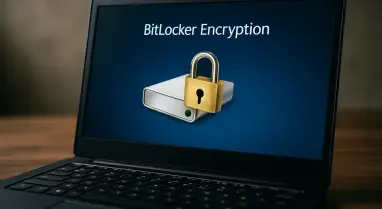In the ever-evolving landscape of cybersecurity, bug bounty programs have emerged as a pivotal framework, engaging ethical hackers to identify vulnerabilities before ill-intended parties can exploit them. However, recent judicial decisions have highlighted the legal intricacies associated with these initiatives, raising concerns about their continued viability. Specifically, the Ninth Circuit Court of Appeals’ reinterpretation of the CFAA in United States vs. Sullivan has introduced significant uncertainty, posing a challenge not only to cybersecurity but also to the collaborative efforts that drive public-private partnerships. While the case has yet to fully unfold its impact, the implications are clear: the intersection of legal interpretations and cybersecurity practices is redefining how industries protect sensitive data and foster innovation while navigating complex regulatory frameworks.
Implications of Judicial Rulings
The ruling has sparked a critical debate, delving into the implications of treating ethical hacker activities under the CFAA as potential criminal conduct. This decision raises the stakes for security researchers who access systems without initial formal authorization, despite acting in good faith to uncover vulnerabilities. Such a standpoint undermines decades of cooperation between hackers and companies, challenging the foundational principles of bug bounty programs. These programs depend heavily on flexible arrangements, often granting retroactive permissions to researchers post-access to streamline the identification and correction of vulnerabilities. The legislative ambiguity now threatens to create a chilling effect, discouraging security professionals from engaging with these programs for fear of legal repercussions. This judicial reinterpretation of CFAA intricately complicates cybersecurity practices, as industries risk facing the brunt of incarcerated researchers rather than successful vulnerability management.
The consequences of these legal maneuvers extend beyond mere technicalities, impacting broader concerns for industry resilience and national security. With the growing complexity of cyber threats, organizations and governmental bodies rely on coordinated vulnerability disclosure to preemptively manage risks. Bug bounty programs, facilitated by entities such as Microsoft and Apple, become instrumental in this process, often serving as frontline defenses against emerging threats. Limiting or criminalizing access when conducted ethically hampers their effectiveness, leaving critical infrastructure more susceptible to malicious attacks. As this legal landscape unfolds, stakeholders are urged to reassess legal frameworks, ensuring they align with contemporary cybersecurity needs while considering the cooperation needed to protect digital assets collectively.
The Role of Public-Private Partnerships
Bug bounty programs exemplify the synergy achieved through public-private partnerships, where government entities and private corporations converge to bolster cybersecurity measures. These programs have emerged crucially in bridging knowledge gaps, inviting global expertise to identify and mitigate system vulnerabilities. In this context, ethical hackers have provided countless insights into potential security breaches, often outpacing the efforts of in-house teams alone. The judicial shifts against such collaborative efforts cast uncertainties on future partnerships, potentially stymying industry progress crucial for developing agile cyber defenses against increasingly sophisticated threats. This threatens to erode the collaborative spirit that these partnerships thrive on, impacting the sector’s ability to keep pace with sophisticated cyber threats.
To safeguard these invaluable collaborations, policymakers now face the task of reevaluating the legal ecosystem governing cybersecurity. As trends indicate a continual rise in threats, a unified response from public and private sectors becomes even more necessary to ensure preparedness against ever-evolving cyber risks. Congress and judicial bodies must play a pivotal role in providing clear, supportive legislation that encourages, rather than restricts, ethical hacking. Effective legal frameworks should affirm the importance of identifying vulnerabilities collaboratively, fostering trust among stakeholders invested in protecting sensitive information. The integrity and future of digital security hinge on preserving these alliances, ensuring that legal interpretations do not undermine the core objectives of safeguarding society against cyber threats.
Evolving Practices and Future Considerations
As cybersecurity challenges persist, legal interpretations like those seen in the Sullivan case demand reconsideration to ensure they meet contemporary needs. Progressive strategies will require adaptability from policymakers, urging them to balance stringent regulations with functional leniency that supports bug bounty programs. These programs are crucial in addressing the cybersecurity workforce crisis, providing skills training and mentorship opportunities that enrich national cybersecurity talent pools. Codifying support and protection for ethical hackers under legislative frameworks is paramount in nurturing this growth, aiding in the management of zero-day vulnerabilities and other immediate threats.
Looking to the future, the cybersecurity community must advocate for public discourse and policy evolution that prioritizes joint efforts against digital threats, incorporating structured transparency and ethical research practices. The constructive role of security researchers must be recognized for their indispensable contributions to national resilience, as they navigate new legal challenges that may redefine traditional approaches to vulnerability management. Promoting safe havens for ethical hacking within secure legal boundaries ensures that the internet continues to be a robust ecosystem, shared and fortified collaboratively. There is an undeniable urgency in harmonizing cyber laws with technological advances, ensuring that cybersecurity remains both proactive and effective against dynamic adversarial forces.
Legal Provisions Must Evolve
The recent ruling has sparked a significant debate about the implications of categorizing ethical hacking activities under the Computer Fraud and Abuse Act (CFAA) as potential criminal acts. This decision heightens risks for security researchers accessing systems without formal authorization, even when their intentions are to identify vulnerabilities. It challenges decades of cooperation between hackers and companies, particularly impacting bug bounty programs. These programs rely on retrospective permissions to researchers who access systems first and then help identify vulnerabilities. The ambiguity in the law could deter security professionals from participating in these programs due to legal risks. This judicial reinterpretation complicates cybersecurity practices, with industries potentially facing incarcerated researchers rather than effective vulnerability management. The ripple effects of these legal changes extend beyond technical aspects to larger concerns for industry resilience and national security, as ethical hacking is crucial in managing cyber threats. Policymakers must reevaluate legal frameworks to ensure they meet modern cybersecurity challenges.






